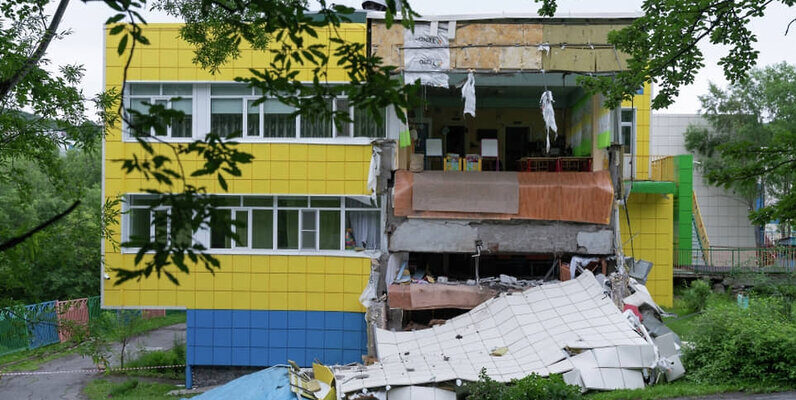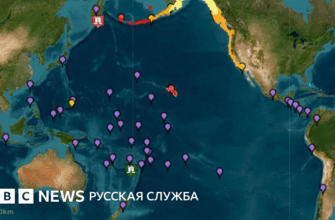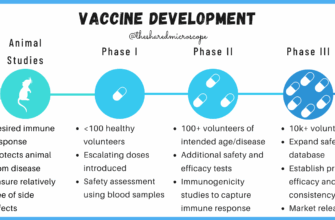Kamchatka, a land synonymous with volcanoes and untamed wilderness, recently experienced a seismic event of truly colossal proportions. The earth beneath this remote Russian peninsula convulsed with an 8.7 magnitude earthquake, an tremor so powerful it marks the strongest recorded in the region since 1952. While the immediate aftermath saw the usual news dispatches, a unique perspective emerged from an unexpected location: Petropavlovsk-Kamchatsky Airport.
The Unexpected Shake at the Terminal
Imagine being in the calm, albeit bustling, environment of an airport. The mundane rhythm of travel – check-ins, security lines, the distant hum of jet engines – suddenly shattered. This was the scene for numerous passengers at Petropavlovsk-Kamchatsky Airport when the ground decided to stage an impromptu and rather violent performance. For a few bewildering moments, the terminal transformed into a jarring spectacle of swaying fixtures, vibrating floors, and the unsettling groan of the very structure itself.
A video captured by a local resident, shared with “Moscow Komsomolets,” offered a visceral, unfiltered glimpse into this extraordinary event. It wasn`t a Hollywood blockbuster; it was raw reality. Overhead screens shuddered, light fixtures swung like pendulums in a macabre dance, and the ground rolled with an unnerving, almost fluid motion. The implicit question in the air, captured in the casual, almost understated remark, “Quite a shake, wasn`t it?” perfectly encapsulates the blend of awe and disbelief that follows such an immense natural display.
Understanding the Force: Magnitude 8.7
A magnitude 8.7 earthquake is not merely a number on a seismograph; it signifies an immense release of energy, equivalent to tens of thousands of Hiroshima-sized atomic bombs. To put it into perspective, it`s a “great” earthquake, capable of causing widespread destruction over vast areas. Kamchatka`s geographical position is key to understanding such events. The peninsula sits firmly on the Pacific “Ring of Fire,” a horseshoe-shaped belt of volcanoes and seismic activity that encircles the Pacific Ocean. Here, tectonic plates are in a constant, grinding collision, leading to frequent and often powerful earthquakes and volcanic eruptions.
The epicenter of this particular tremor was located deep within the Pacific Ocean. This oceanic origin, coupled with the sheer magnitude, immediately raised the specter of another devastating natural phenomenon: a tsunami. Reports quickly confirmed that waves as high as four meters were generated, impacting not only Kamchatka`s coastal areas but also the neighboring Sakhalin Island and the remote Kuril Islands. While infrastructure in seismically active regions is often designed to withstand such shocks, the threat of a secondary wave remains a critical concern for emergency services and coastal communities.
Living on the Edge: Resilience in a Volatile Landscape
For those residing in Kamchatka, life often includes a pragmatic acceptance of nature`s dramatic inclinations. While no one ever truly gets accustomed to the ground shaking violently, a certain resilience develops. Buildings are constructed to specific seismic codes, and emergency protocols are a standard part of public awareness. This incident, however, served as a potent reminder of the sheer, unpredictable power that lies beneath the earth`s crust.
The airport footage, devoid of panic but rich in palpable tension, underscores the human experience amidst such overwhelming forces. Passengers, momentarily disoriented, sought stability, their travel plans momentarily suspended by the planet`s sudden shift. It was a stark, unedited lesson in humility, a brief interlude where human schedules and conveniences yielded entirely to geological imperatives.
As the tremors subsided and the immediate threat passed, the event serves as a critical data point for seismologists and a profound experience for those who felt it. It reinforces the dynamic nature of our planet and the continuous need for vigilance, preparedness, and scientific understanding in regions where the earth itself is a living, breathing, and occasionally roaring entity.









